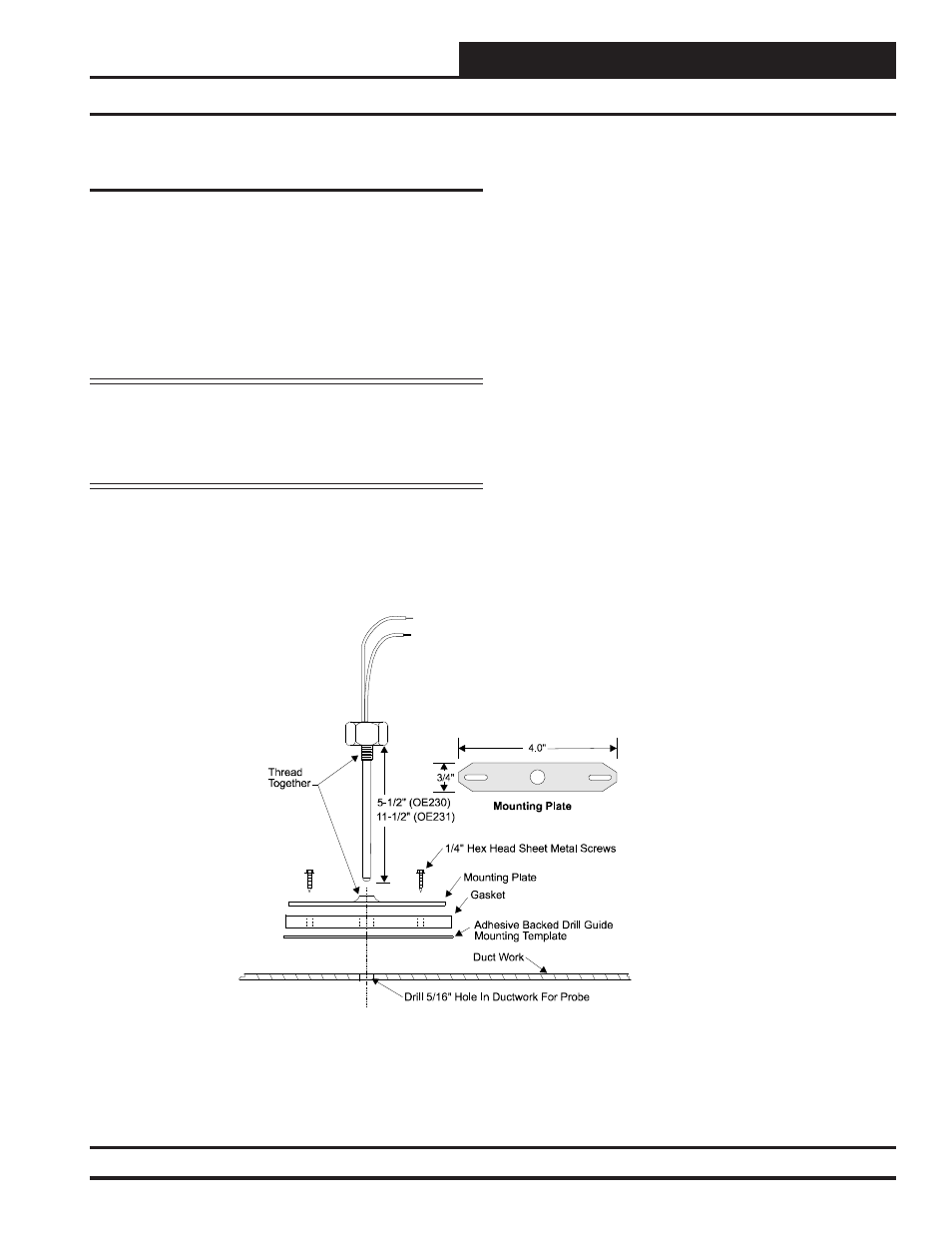Appendix a, Supply air temperature sensor installation – Orion System MHGRV-X User Manual
Page 17

MHGRV-X Field Technical Guide
APPENDIX A
17
Supply Air Temperature Sensor Installation
Mounting the Supply Air Temperature
Sensor
The Supply Air Temperature Sensor should be located in the duct-
work downstream of the unit supply air connection. Locate the sensor
in the center of the widest part of the duct. Use the supplied template
and a 5/16” drill to make a hole for the sensor. Install the gasket
over the probe and mount securely to the duct using the supplied
sheet metal screws. Be sure the gasket is compressed to provide an
air tight seal. For best accuracy, apply insulation on the outside of
the duct, over the sensor. This will help prevent thermal gradients
from affecting the sensor.
WARNING: Make sure your Supply Air Temperature Sensor
is mounted and wired according to these
instructions prior to testing the unit or else the
modulating valve will not control properly and
may damage your equipment.
Figure 6: Supply Air Temperature Sensor Installation
Leads Are Non-Polarized. Butt Splice Leads
To 24 Gauge Wire Minimum.
In Stand Alone Applications And In Retrofit Applications,
Connect Leads to “SAT” And “GND” On MHGRV-X Controller
See
.
If Using VCM, VCM-X, SA, RNE Or VCB-X
Controller, Connect Leads To “AI2” And “GND”
On Main Controller.
Table 7, Page 18
Stand-Alone Mode
In Stand-Alone Mode, the SAT Sensor is connected to the MHGRV-
X Controller. If, in Stand-Alone Mode, the MHGRV-X Controller
is used in conjunction with a Stand-Alone MODGAS-X Controller,
the SAT sensor is shared between the two controllers and always
attaches to the MODGAS-X Controller.
See Table 8 on page 18 for SAT Options Jumper Settings and see
Figure 3 on page 6 for wiring.
Communication Mode
When communicating with AAON Unit Controllers, the SAT Sensor
will be connected to the Main Controller. The exception would be
in retrofi t applications with older controllers. See Table 9 on page
18 for SAT Options Jumper Settings and see Figures 2 on page 5
for wiring. See Table 7 on page 18 and Appendix B on page 19
for details about retrofi t applications.